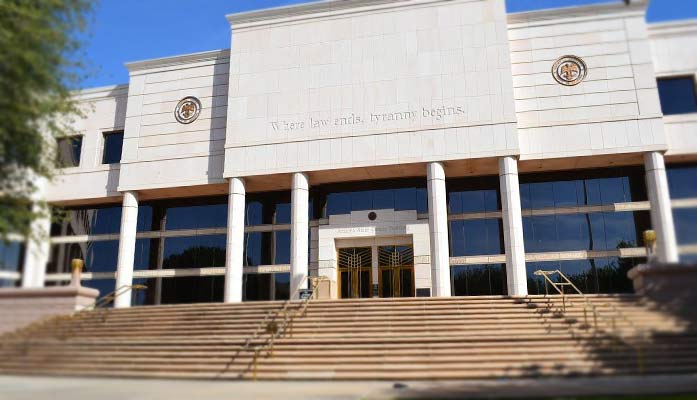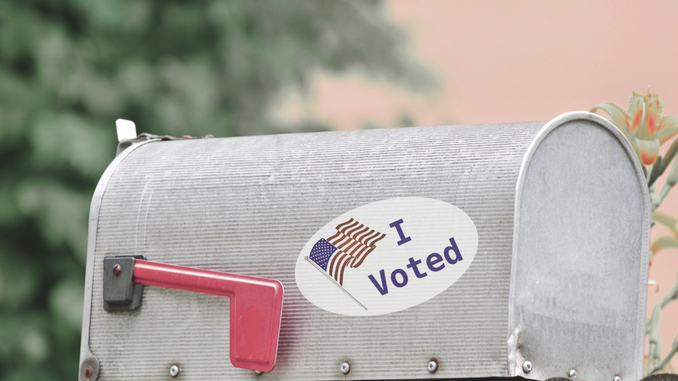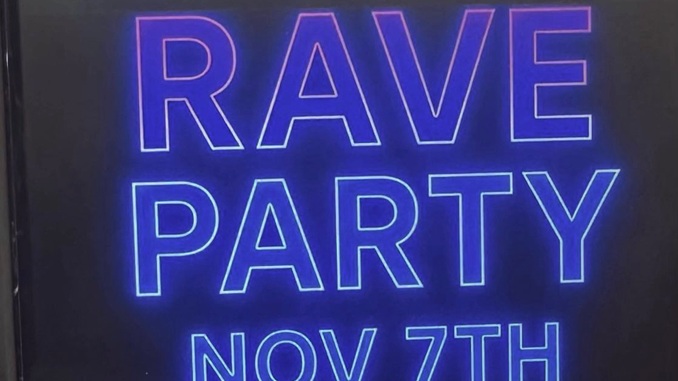
by Staff Reporter | Nov 26, 2025 | Education, News
By Staff Reporter |
The nation’s biggest union overseeing educators is prioritizing trainings to advance LGBTQ+ justice and defeat white supremacy as student outcomes continue to decline.
The National Education Association (NEA) plans to train educators on these topics through the 2025-26 Focus Academy schedule. Affiliate staff and member teams attend these academies to develop and implement issue organizing campaigns, per the NEA.
The NEA will kick off the holiday season with a three-day training on “Advancing LGBTQ+ Justice and Transgender Advocacy” the week after Thanksgiving.
The training is exclusive to members and allies of the LGBTQ+ community. It seeks to harmonize the LGBTQ+ ideology and strategize to defeat other ideologies opposed to it:
“With partners from the Center for Racial Justice, members of the LGBTQ+ community, and other experts participants will learn how to: establish common understandings about the identities under the LGBTQ+ community umbrella; develop a shared understanding of the anti LGBTQ+ policy landscape and how to develop counter narratives of inclusion and equity; deepen skills and strategies to confront implicit bias, micro-aggressions and stereotypes in the LGBTQ+ community; [and] develop a toolset of tactics for dismantling systems of privilege and oppression as it relates to LGBTQ+ educators and students.”
Within this academy, educators are trained on defaulting to the pluralization of genders, using pronouns, transitioning genders, and implementing the Gender Unicorn.
Then, to kick off the New Year, the NEA will train educators on “address[ing] white supremacy culture.” The NEA emphasized a need for individuals “highly skilled” in handling “white fragility and interpersonal oppressions.” Leaked materials show a term that seems to have fallen out of the wayside in public commentary: Critical Race Theory (CRT).
“Recently, [Republicans] have paired these attacks with fear-mongering about Critical Race Theory, mobilizing their base with a potent mix of racist and transphobic tropes,” stated the training materials.
This focus academy training will have educators complete a campaign plan that details what racial justice looks like:
“Participants will learn how to help themselves and others: establish a common language for talking explicitly about white supremacy culture in a campaign cycle; deepen skills and strategies to confront implicit bias, microaggressions, and stereotypes; develop a shared understanding of the levels of racism with a focus on a power analysis required to make changes at various levels; [and] develop a toolset for dismantling systems of privilege and oppression.”
Defending Education published leaked materials from these academies. Per these materials, NEA leadership harmonizes and equates the issues facing the advancement of LGBTQ+ ideology and Critical Race Theory.
The materials show that the NEA blamed the lack of public support on transgenderism for minors on the political right having “exploited” general ignorance of LGBTQ+ ideology.
“Over the last ten years, Republicans in state legislatures have increasingly turned to anti-transgender rhetoric and legislation as a powerful complement to their arsenal of racist dog whistles used to whip up fear and consolidate power,” said the materials.
The latest Nation’s Report Card by the National Assessment of Educational Progress yielded additional declines in scores across the board for math, reading, and science.
AZ Free News is your #1 source for Arizona news and politics. You can send us news tips using this link.

by Staff Reporter | Nov 25, 2025 | News
By Staff Reporter |
The Arizona Supreme Court held a hearing on Monday to decide whether the city of Phoenix can hide certain public records.
The city is being sued by the Goldwater Institute, a Phoenix-based public policy and litigation organization, over its hiding of records concerning union negotiations.
In Goldwater v. Phoenix, the Goldwater Institute argued the city of Phoenix has a duty to disclose those records in order to allow the public to have an informed decision, and because they serve as the entity negotiating on behalf of the public.
The organization filed their lawsuit in March of 2023 after the Phoenix Law Enforcement Association (PLEA) declined to provide a draft memoranda of understanding (MOU) for public input at the end of 2022. PLEA had provided its MOU drafts in preceding years.
Per the city’s “Meet and Confer” ordinance, unions must submit MOUs by Dec. 1 in the year before the expiration of an operative agreement so that the public may provide input prior to negotiations between the union and city.
Despite not having a draft MOU available for the public to review, the Phoenix City Council moved forward with a meeting to collect public comment on an unsubmitted draft.
The city then began negotiations in January 2023.
The city of Phoenix refused to give PLEA’s draft MOU to the Goldwater Institute upon request, claiming the records were exempt from public records disclosure because public scrutiny would burden negotiations.
The city claimed they were protected under the state’s public records law exemption allowing the withholding of records should they prove detrimental to a government’s best interest.
“Releasing those types of materials would create a chilling effect on the parties’ willingness to candidly engage with each other and it would hinder the negotiations process,” said the city in their denial message.
The city also expressed concerns that public access to MOUs would politicize union negotiations.
Parker Jackson, Goldwater Institute staff attorney, disagreed that these records were covered by the best interests exemption.
“With few exceptions, public records must be made available to the public,” said Jackson in a press release. “When there’s a need to protect things like personal privacy or public safety, the government must be able to show that specific and significant harm is likely to result from public disclosure. It cannot simply withhold information based on self-interested speculation that some minimal inconvenience ‘might’ occur.”
In January, the Arizona Court of Appeals remanded the case to the Arizona Superior Court so that court could privately review unredacted and redacted versions of the contested MOU documents, and determine whether the documents deserved exemption from public disclosure according to the best interests of the state.
The Arizona Supreme Court is considering two issues in this case:
- Did the Court of Appeals err by not requiring the City, after it invoked the “best interests of the state” exception, to establish a probability that specific, material harm will result from disclosure, as Mitchell v. Superior Court requires?
- Did the Court of Appeals err by not applying the Carlson v. Pima County balancing test de novo to independently determine whether the City’s purported interests in nondisclosure outweigh the presumption in favor of disclosure?
The public may watch the archived video of Goldwater v. Phoenix here.
AZ Free News is your #1 source for Arizona news and politics. You can send us news tips using this link.

by Staff Reporter | Nov 23, 2025 | News
By Staff Reporter |
Maricopa County leadership is dissatisfied with the rejection rate of ballot signatures.
Following Wednesday’s canvass of this month’s election, Board of Supervisors Chairman Thomas Galvin said the new signature verification policy was problematic for having yielded a much higher rejection rate compared to years past.
“At this rate, 15,269 ballots would’ve been rejected in ‘24 prez election,” said Galvin. “Only 7,220 were rejected in ‘24.”
About 30,000 ballots were subject to further review, and of those 15,000 went through the curing process. Altogether, about 5,900 ballots were rejected following the curing process out of about 700,000 total cast ballots. An additional 1,000 ballots were rejected for having no signatures and the voter failing to respond to the county’s curing attempts by deadline.
The rejection rate rose to .8 percent this go around. Last year and in 2023, the rejection rate was .3 percent. It was .1 percent in 2022.
The recorder’s office also clarified that this was the first election in decades to send mailed ballots to all voters, which they say also contributed to the higher rejection rate.
Heap responded to Galvin’s criticism by accusing the chairman of deflecting from the county’s election bungles with fabricated, nonexistent issues in his office.
“Instead of holding his own staff accountable for misplacing thousands of Election Day ballots and illegally seizing control of the Recorder’s statutory responsibilities, Chairman Galvin chose to attack the only part of the process that worked flawlessly,” said Heap.
Heap was referencing the misplacement of two sealed transport boxes with nearly 2,300 ballots by election workers this month. The ballots were discovered several days after the election occurred, on the day of the ballot curing deadline. This forced the recorder’s office to complete ballot processing in record time, and attempt to cure ballots in a matter of hours.
Galvin acknowledged the 2022 election was a disaster in private, sources say, but publicly he defended the county’s administration.
The Heap administration implemented certain changes to ease and strengthen signature verification efforts: side-by-side screen viewing of a voter’s on-file signature and their cast ballot signature, rather than having a worker scroll up and down; and requiring three separate levels of review rather than relying on the same person double-checking their work.
During Wednesday’s board of supervisors meeting, Heap repeatedly defended his position that the signature on the cast ballot must match the voter’s historic signatures on file in their record.
“In the end, if we have a signature, and the signature on the envelope does not match the signatures we have on file, and it’s now been reviewed through multiple phases, we cannot accept that signature unless that person calls,” said Heap. “We can make all diligent efforts to reach out but, in the end, the signatures either match or they don’t.”
The supervisors were divided on Heap’s approach — and whether the changes were worth it — although they did agree that the bipartisan review was a good step.
Supervisor Debbie Lesko approved of Heap’s signature verification process.
“I’ll give you credit when credit’s due, and I think if you’ve done it faster and it’s still accurate and you’re able to make it easier for the people, it sounds like a good thing,” said Lesko.
Supervisor Steve Gallardo questioned how time-consuming the process was in comparison to Heap’s predecessor, Stephen Richer. Heap responded that the signature verification has sped up due to the bipartisan team setup, and that they concluded their work the day after the election.
Some familiar voices chimed into the social media chatter over the bristling interactions between select supervisors and Heap.
Maricopa County’s former recorder, Stephen Richer, said Heap’s approach went against the state’s signature verification law.
“That’s not even how statute works,” said Richer.
Richer told KJZZ that election fraud through stolen mail-in ballots in an off-year election was so far-fetched as to be humorous.
“It’s laughable to think 5,000-plus people stole ballot envelopes and forged signatures so they could cast one more vote in a school bond election,” said Richer.
ABC15’s Garrett Archer said Heap’s multiple levels of review was problematic because matching signatures has a certain level of subjectivity that can cause individuals to disagree on what they’re seeing.
“In the old process, private information was on screen that could be used as a second check. This has been stripped to allow observers to be closer to the process,” said Archer. “If they so choose to proceed this way, there will likely be 80,000+ signature elevations in 2026. They need to staff accordingly or this could become a major problem.”
An elections advocate, Merissa Hamilton, countered that signature verification is “ultimately subjective,” and that the elimination of the private information component allows for a more unbiased review of the ballot.
AZ Free News is your #1 source for Arizona news and politics. You can send us news tips using this link.

by Staff Reporter | Nov 22, 2025 | Education, News
By Staff Reporter |
One of the Scottsdale Unified School District (SUSD) governing board members was busted by the cops for a party attended by teens.
SUSD governing board member Matt Pittinsky threw a “rave party” for his teenage son’s birthday earlier this month that ended with police and an ambulance responding to the scene, per sources cited by the advocacy group, Scottsdale Unites For Educational Integrity.
Pittinsky’s son attends Brophy College Preparatory School, a private high school, where Pittinsky sits on the board of regents.
At a special meeting last week, one of Pittinsky’s neighbors addressed the board about the party. The neighbor said he witnessed a young girl taken to the hospital by first responders for alcohol poisoning. The neighbor questioned Pittinsky’s judgment, especially amid ongoing conversations about the potential closures of two schools: Echo Canyon School and Pima Elementary School.
“There was an underage girl hauled away in an ambulance for alcohol poisoning from a rave party at Mr. Pittinsky’s house,” said the neighbor. “Paradise Valley Police Department had to shut this mess down, and our neighborhood had a mess from it. It was quite the scene.”
Along with his SUSD seat, Pittinsky is an Arizona State University (ASU) visiting scholar for the Sanford School.
Pittinsky has also been CEO of Parchment, which manages and sends academic transcripts, and formerly CEO to Blackboard, a leading education software and learning management system company which he co-founded.
Blackboard received criticism over the years within the education and legal communities over alleged anticompetitive practices: lawsuits over alleged patent infractions and a steady acquisition of competitors that, essentially, forced educators to use them though Blackboard wasn’t their preferred vendor.
An invitation for the Pittinsky party posted by a since-deleted Instagram user, “nov.7.funcoverflow,” said the party would last from 8 pm to “GTFO” (an acronym for “get the f*ck out”), and told guests to “BYOE,” which stands for “bring your own everything.”
According to a letter from Pittinsky and his wife delivered to neighbors, the Pittinskys hired security to limit attendance to invited guests, and promised the party would last only until midnight.
However, eyewitness accounts said that police “shut down” the party several hours into the festivities. Eyewitnesses also reported at least one teenager was taken away from the party in an ambulance.
Scottsdale Unites For Educational Integrity urged parents and community members to address the Pittinsky party during the SUSD’s regular governing board meeting on Tuesday.
Much of the public comment on Tuesday’s meeting focused on voicing opposition to the proposed closures of Echo Canyon School and Pima Elementary School.
Those who did address the Pittinsky party questioned Pittinsky’s dedication to student health and safety.
Scottsdale resident Mike Bengert, a father and grandfather, asked for a complete, public investigation into the incident, as well as an apology and resignation from Pittinsky. Bengert’s remarks were met with applause.
“Hosting, permitting, or failing to prevent an environment in which underage drinking and medical emergencies could occur is deeply troubling,” said Bengert. “Why should the community trust your judgment on issues so critical to our public schools? Your actions suggest a disregard for the safety and wellbeing of the very students you are sworn to serve.”
AZ Free News is your #1 source for Arizona news and politics. You can send us news tips using this link.

by Staff Reporter | Nov 21, 2025 | Education, News
By Staff Reporter |
Over 100 out of about 400 schools in Arizona have advanced out of federal school improvement status, per the Arizona Department of Education.
There are over 2,800 schools in the state. That means approximately 14 percent (after this latest update) of all schools statewide remain on the Arizona Department of Education (ADE) list.
Schools on the federal list consist of those with low graduation rates and test scores per the Every Student Succeeds Act (ESSA), a federal law passed by the Obama administration in 2015 that, essentially, reauthorized the Elementary and Secondary Education Act of 1965.
ESSA was responsible for every state and district publishing a report card for public review, as well as publishing how much is spent per student at every school, broken down by federal, state, and local monies.
ESSA’s predecessor was the No Child Left Behind Act (NCLB), enacted in 2002. NCLB received criticisms for its heavily federal approach to education, where many thought the states could yield student outcomes better.
ADE identifies these schools — classified as Comprehensive Support and Improvement – Low Achievement (CSI-LA) schools — every three years. Schools have four years upon identification to exit this status.
CSI-LA schools are those that don’t meet the 60 percent proficiency, 20 percent growth or graduation rate, 10 percent English Learners achievement and growth, and 10 chronic absenteeism (K-8) or 10 percent drop out rate (high school).
The Arizona Department of Education monitors these schools through its Office of School Improvement.
Superintendent Tom Horne said in a statement that these schools’ advancements prove that dedication to the basics — namely through Project Momentum Arizona (PMA) — does work.
“The schools we are honoring today have proven that when students are challenged academically and class time is devoted to teaching core subjects like reading and math, test scores will go up, and students will succeed,” said Horne. “It is a highly effective program that emphasizes academic knowledge and helps educators do the right work to ensure that all students succeed.”
Horne hosted a press conference on Wednesday to praise these schools, including Roosevelt School District, which had four schools leaving the list. Horne also issued a similar announcement on Thursday.
PMA has schools select one or more from a list of guiding questions around which to frame their improvement plans. These questions focus on recognizing the specifics of desired student outcomes, evidence of student comprehension, highest-yielding instructional practices, responses to lack of student learning, planned responses to student mastery of materials, and goals for improving, cataloging, and saving work.
Spring state assessment results showed that an average of 33 percent were passing math, and 40 percent were passing English. These results aligned with those from the previous year.
COVID-19 caused student proficiency to drop significantly. They were on an upward trend, achieving 42 percent in math and English.
Oversight of failing schools may soon become more of a state problem, with ongoing efforts to dismantle the Department of Education.
Horne told The Center Square that he’s “pleased” with the Trump administration’s decision.
“[I am] pleased with the administration’s work to move the work of education back to the states and addressing the needless bureaucracy of the federal department,” said Horne.
AZ Free News is your #1 source for Arizona news and politics. You can send us news tips using this link.





